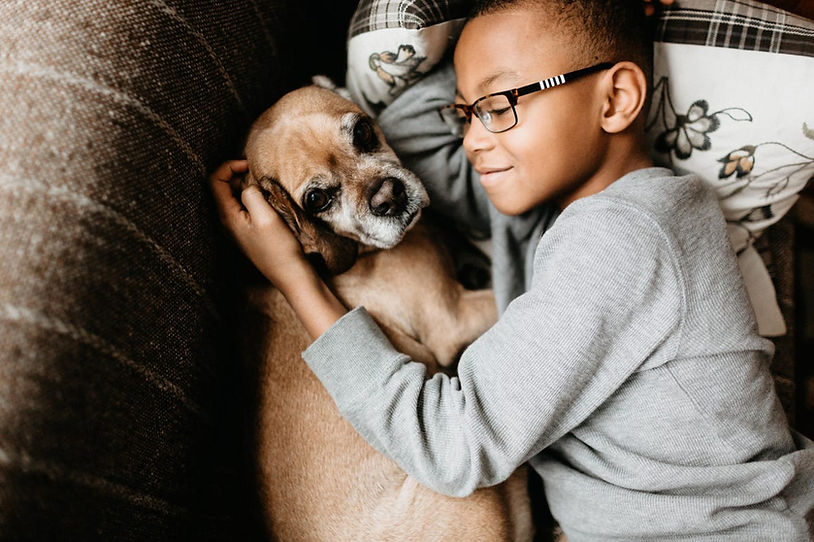By: Kathy Wu
Dr. Hal Herzog, a newspaper writer and animal psychologist, recalls life beyond his numerous works and achievements. Herzog points out his family’s dog ownership of Tsali, a yellow Labrador, who was their son’s major source of comfort and psychological support, especially during his years of adolescent angst. It may have seemed a while ago, but life can never have the same entertainment and joy without our furry friends.
Research shows that pets can help cement relationships, play with children, and even entertain parents when children leave home. A U.S. study shows that 63 percent of families with an infant under 12 months old had a pet, and an Australian study found a 10 percent increase in pet ownership when children started school. “Nothing less than alchemy is involved when animals and children get together, and the resulting magic has healing properties that work well,” wrote psychologist Elizabeth Anderson in one of her most famous books, The Bond Between People and Pets.
In addition to amusing and keeping company for people, pet ownership can influence a young child’s social skills, physical health, and cognitive development. For example, pets can allow shy and introverted children to get comfortable around people by letting them sense how pets and owners build a bond of care for another living being. “It’s really important, especially for young kids, to learn that someone’s perspective might be different from their own…an easier lesson to learn, perhaps, with an animal than it is with, say, a sibling or a peer,” said Megan Mueller, associate professor of human-animal interaction at Tufts University in the U.S. The development was clearly shown in families with autistic children where children with pets found more opportunities to create strong bonds with people. “We can actually say that children having pets and interacting with them over time in early childhood does seem to cause these added benefits in terms of their social-emotional development,” said Hayley Christian, a University of Western Australia graduate and senior research official at the Telethon Kids Institute. A study showed that when a dog was in the room, children made less errors during object categorization tasks and didn’t need as many prompts in memory tasks. Pets also helped develop passion for learning and education. Dr. Hal Herzog related a personal experience of him and his old pet snake (Fred) to this, saying, “I was learning the Latin names of snakes and devouring books on reptile ecology. In retrospect, Fred turned out to be the metaphorical gateway drug that led me to pursue a Ph.D. in animal behavior…”
Further data shows that children ages 2-5 with a family dog were easily more active, spent less time on screens, and slept more on average than those without one, and in a study of 4,000 children ages 5-7, those with pet ownership resulted in less peer problems and a better social life. Even children themselves rank pets as some of the most important beings in their lives.
Finally, one of the most significant benefits of having a pet is how it reduces levels of depression. Research shows that having a companion provides comfort and prevents loneliness. Pets also provide a feeling of purpose because of how a pet and its owner depend on each other every day. For example, motivation for caring for the pet changes the whole child’s perspective of a bad day.
Link: https://s3.amazonaws.com/appforest_uf/f1655668327555x631845242129933800/How%20pets%20give%20your%20kids%20a%20brain%20boost%20-%20BBC%20Future.pdf
https://www.psychologytoday.com/us/blog/animals-and-us/201707/why-kids-pets-are-better











